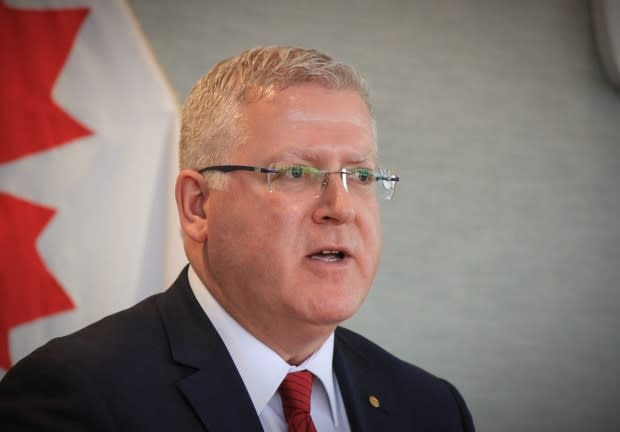N.S. government picks up tab for CBRM wastewater infrastructure
The Nova Scotia government will now pay Cape Breton Regional Municipality's share of the cost of new wastewater infrastructure required to meet strict federal pollution guidelines.
Under a deal announced last September, the federal government agreed to pay $39.1 million, the province would kick in $32.6 million and the CBRM would cover the remaining $26.2 million to build new sewage treatment plants in Glace Bay and Port Morien.
The money was to also cover ultraviolet treatment at the Battery Point plant in Sydney and at lagoons in four other communities. CBRM was also planning an additional $8 million in associated water and sewer line work that included road reconstruction.
All together the projects will cost $106 million. Last week, the provincial government offered to cover the municipality's entire portion, bringing CBRM's share of the costs to zero.
"It's good news," CBRM Mayor Cecil Clarke said. "It keeps us a community whole. It allows us to meet the regulatory requirements and still at the same time be able to afford our already planned local underground infrastructure."

Those high-priority regulatory wastewater obligations are unique to the CBRM, he said.
"No other municipality in Nova Scotia has that pressure," Clarke said.
Under federal pollution regulations from 2012, municipal wastewater systems were deemed high, medium and low priority. The high-priority works must be completed by Dec. 31, 2020.
On Friday, CBRM director of engineering and public works Wayne MacDonald told an emergency meeting of council that the deadline would not be met, and it will take seven years to complete the projects.
MacDonald has previously said the Glace Bay and Port Morien treatment plants are the last of the high-priority projects to be done. Medium-risk wastewater infrastructure has to be upgraded by 2031 and the rest have to be done by 2041.
Clarke said the provincial government agreed to cover CBRM's share of the remaining high-priority projects in order to get work going once the state of emergency is lifted.
"It allows us to speed up and make project activity happen on all projects — at least initiated this year and some projects underway this year — to get people working," he said.
The new agreement means the province will pay 60 per cent of the costs and the federal government will cover 40 per cent and the work will be carried out over the next seven years.
Improve environment, lives
Deborah Bayer, who speaks for the provincial Transportation and Infrastructure Renewal Department, said in an email the new funding agreement is not related to the COVID-19 state of emergency.
"Upgrades to CBRM's water and wastewater systems will help improve the environment and the lives of local residents," she said.
"These projects will help CBRM in addressing the federal wastewater systems effluent regulations and provide the municipality with the capacity to address other priority infrastructure needs. With appropriate infrastructure, CBRM is able to grow their capacity to attract additional interest and investment."
CBRM is also considering an additional $39.5 million in future underground sewer and water line upgrades, which will include road reconstruction, but Clarke said no funding agreements have yet been made on those.
MORE TOP STORIES
